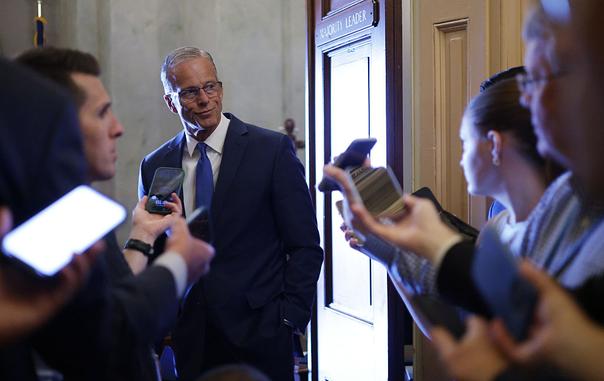2025-06-22 20:36:22
With new Senate legislation, Congress is one step closer to gutting the Inflation Reduction Act
The so-called Big Beautiful Bill targets the tax credits designed to put the U.S. on the path to net-zero carbon emissions
https://grist.org/politics/big-beautif
2025-06-23 08:36:00
Pixel-wise Modulated Dice Loss for Medical Image Segmentation
Seyed Mohsen Hosseini
https://arxiv.org/abs/2506.15744 https://arxiv.or…
2025-06-22 10:24:50
Trains supprimés :
- LOLA au départ de Saint-Quentin-en-Yvelines Š 15h10 et Š l'arrivée en gare d'Invalides Š 15h51.
- SARA au départ d'Invalides Š 16h08 et Š l'arrivée en gare de Saint-Quentin-en-Yvelines Š 16h51.
- LOLA au départ de Saint-Quentin-en-Yvelines Š 17h10 et Š l'arrivée en gare d'Invalides Š 17h51.
- SARA au départ d'Invalides Š 18h08 et Š l'arrivée en gare de Saint-Quentin-en-Yvelines Š 18h51.
Risque d'affluence Š bo…
2025-05-22 22:06:18
Is this a design pattern and if yes, how it is called?
interface AddressValidator {
isSupported(string $country): bool;
validateAddress(Address $a): Address
}
class GermanValidator implements AddressValidator {}
class FranceValidator implements AddressValidator {}
class MetaValidator implements AddressValidator {
__construct(AddressValidator ...$validator)
// run through the validator and find one for the address -> country and use it.
…
2025-05-23 19:32:51
„Immer mehr Anleger sehen in Agrarflächen einen sicheren Hafen und einen wirksamen Schutz gegen eine inflationäre Geldpolitik. Land ist nicht beliebig vermehrbar, und die Nachfrage danach steigt kontinuierlich, ob durch Siedlungsbau, Verkehr oder die Energiewende. Seit der Finanzkrise ist das Interesse an stabilen Sachwerten stark gewachsen und neben Gold rückt dabei Ackerland zunehmend in den Fokus.“
2025-06-23 10:29:20
Kaluza-Klein inspired a model of the inflation with the inversed power law potential in Bianchi type-I universe
Jaturaporn Wattanakumpolkij, Patinya Ma-ardlerd, Natthason Autthisin, Pornpatara Chuvala, Nutthaphat Lunrasri, Chakrit Pongkitivanichkul, Daris Samart
https://arxiv.org/abs/2506.16139
2025-05-22 19:41:56
The near-total repeal of the #InflationReductionAct, as passed by the US House, would increase USA carbon emissions by 150 MtCO2eq/year by 2030 (for power generation alone) and 1 Gt/y by 2035. (While also increasing costs nearly everywhere.)
http…
2025-06-19 10:35:57
2025-05-22 12:30:47
2025-05-22 13:02:36
To give some examples:
When police get vastly differential results at investigating crimes against some groups (e.g., Black women) vs. others (e.g., white men), that's malcompetence. Probably plenty of simple malice involved too, and probably the whole gamut of mechanisms I mentioned in the last post are involved here.
Another example, from my own experience: when I stumble over the names of my non-white students but pronounce my white students' names flawlessly, that's malcompetence on my part, because the net effect of my selective incompetence is to make some students feel less welcome in my classroom, which hurts their learning. I'm my case, the reasons for the incompetence are not conscious nor (I think) unconscious malice, but instead a differential capability picked up from a certain kind of upbringing and then (sometimes) insufficiently mitigated by capability-building effort. Because of how I grew up, my ability to pronounce different names is biased (this is true of everyone in the world; most people don't have a classroom instructor position that causes it to matter so much). When I'm successful at mitigating my malcompetence, I use practice time with student intro videos to pare down my competence gap for the specific students in my class. This is time consuming (several hours per week for the first few weeks of classes) and I'm sad to admit that I don't always invest that time. But it's a great example of malcompetence because I have a introspective access to it.




